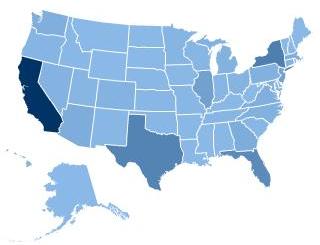Defending the Fourteenth Amendment: A Resource Page |
Restrictionist groups and legislators have persisted in their attempts to restrict or repeal birthright citizenship in State Houses and the U.S. Congress. Over the years, several bills have been introduced that would deny U.S. citizenship to children whose parents are in the U.S. illegally or on temporary visas. The Fourteenth Amendment to the Constitution—the cornerstone of American civil rights—affirms that, with very few exceptions, all persons born in the U.S. are U.S. citizens, regardless of their parents' citizenship. Following the Civil War and the emancipation of the slaves, the Fourteenth Amendment restated the longstanding principle of birthright citizenship, which had been temporarily erased by the Supreme Court's "Dred Scott" decision which denied birthright citizenship to the U.S.-born children of slaves. The Supreme Court has consistently upheld birthright citizenship over the years. The following IPC resources present a strong case for maintaining and celebrating our tradition of birthright citizenship—a tradition which is intimately tied to our heritage of civil rights.
For Basic Facts on Birthright Citizenship:
- Read Ending Birthright Citizenship Would Not Stop Illegal Immigration
- Read Pew Report Sheds Little Light on Birthright Citizenship
- Listen to Michele Waslin (Immigration Policy Center). Margaret Stock (Attorney and Retired Lieutenant Colonel, Military Police Corps, US Army Reserve), Elizabeth Wydra (Constitutional Accountability Center), Eric Ward (Center for New Community), and Bill Ong Hing (University of San Francisco School of Law) discuss the 14th Amendment and Birthright Citizenship.
Made in America: Myths & Facts about Birthright Citizenship
The Fourteenth Amendment to the Constitution is enshrined in U.S. history as the cornerstone of American civil rights, ensuring due process and equal protection under the law to all persons. Equally important, however, is the Fourteenth Amendment’s affirmation that all persons born or naturalized in the United States and subject to its jurisdiction are, in fact, U.S. citizens. But the question of who is entitled to U.S. citizenship is most often raised during debates over illegal immigration. While most of the debate turns on the question of who can become a citizen through legalization and naturalization, some groups argue that the way to end illegal immigration is to change the rules of the game by denying citizenship to the U.S.-born children of illegal immigrants. Rarely, however, does the immigration advocacy community explore the impact of the birthright citizenship debate as it relates to the Fourteenth Amendment. Thus, the Immigration Policy Center invited respected scholars and authors to provide greater perspective on this perennial issue:
- Defining “American": Birthright Citizenship and the Original Understanding of the 14th Amendment
James C. Ho, a noted constitutional scholar, examines the historical and legal genesis of birthright citizenship and the unsuccessful legal arguments put forward to abolish it. - Debunking Modern Arguments Against Birthright Citizenship
Elizabeth Wydra of the Constitutional Accountability Center looks at the Reconstructionist context of the Citizenship Clause and shows that Congress clearly meant to provide birthright citizenship to all those born on U.S. soil, regardless of the immigration status of their parents. She argues that attempts to abolish birthright citizenship run counter to American values. - New Nativism: Anti-Immigration Politics and the Fourteenth Amendment
Eric Ward of the Center for New Community provides an African American perspective on birthright citizenship and the 14th Amendment, which was passed in the aftermath of the Civil War in response to continued discrimination against African Americans. Ward also examines the motives of the groups at the forefront of current efforts to abolish birthright citizenship and demonstrates their deeply rooted anti-immigrant beliefs and ties to nativist and racist traditions. - Policy Arguments in Favor of Retaining America’s Birthright Citizenship Law
Immigration attorney Margaret Stock provides very practical reasons to not tamper with birthright citizenship. The far-reaching consequences of such a change would place a burden on all Americans, who would have to document their claim to citizenship. Contrary to the argument of anti-immigrant groups that abolishing birthright citizenship is key to resolving the problem of illegal immigration, Stock recognizes that it would only increase the number of stateless individuals without legal status who reside within the United States.
Listen to the "Made in America" Telebriefing:
Read blog posts about Birthright Citizenship:
- Senators Graham and Kyl Buy Tickets to the Birthright Citizenship Dog and Pony Show
- Ending Birthright Citizenship Won’t Solve Our Immigration Problems
- An Anti-Immigrant Hate-Fest on Capitol Hill
- Birthright Citizenship: Myths, Facts and Why It Matters
- Old Anti-Immigrant Ideas, Even Bad Ones, Die Hard
Published On: Mon, Aug 02, 2010 | Download File



